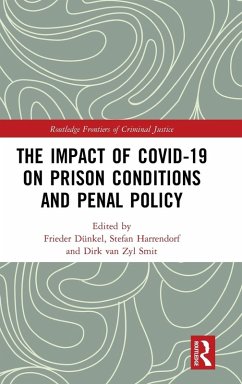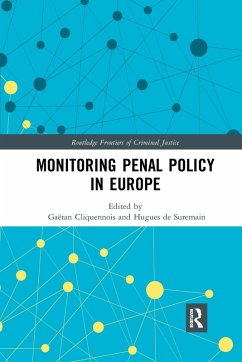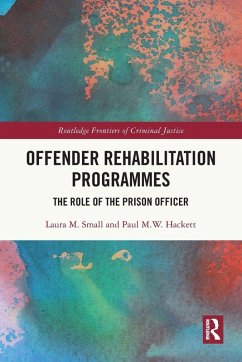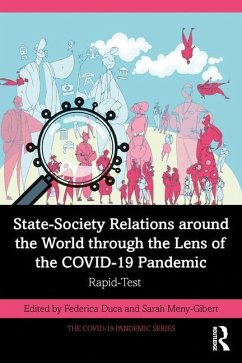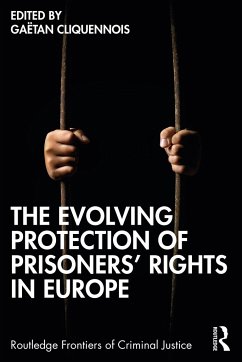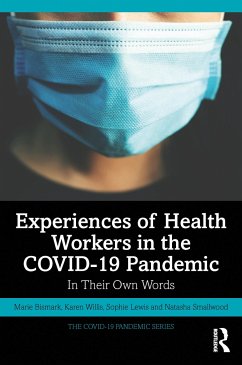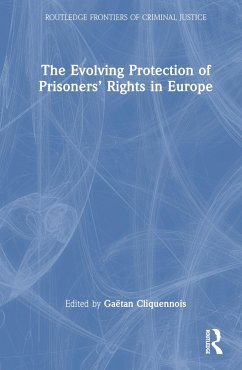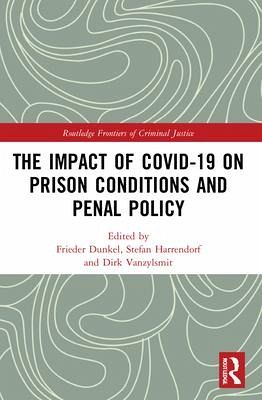
The Impact of Covid-19 on Prison Conditions and Penal Policy
Versandkostenfrei!
Versandfertig in 6-10 Tagen
46,99 €
inkl. MwSt.

PAYBACK Punkte
23 °P sammeln!
The Impact of COVID-19 on Prison Conditions and Penal Policy presents the results of a worldwide exchange of information on the impact of COVID-19 in prisons. It also focuses on the human rights questions that have been raised during the pandemic, relating to the treatment of prisoners in institutions for both juveniles and adults worldwide.The first part brings together the findings and conclusions of leading prison academics and practitioners, presenting national reports with information on the prison system, prison population rates, how COVID-19 was and is managed in prisons, and its impact...
The Impact of COVID-19 on Prison Conditions and Penal Policy presents the results of a worldwide exchange of information on the impact of COVID-19 in prisons. It also focuses on the human rights questions that have been raised during the pandemic, relating to the treatment of prisoners in institutions for both juveniles and adults worldwide.
The first part brings together the findings and conclusions of leading prison academics and practitioners, presenting national reports with information on the prison system, prison population rates, how COVID-19 was and is managed in prisons, and its impact on living conditions inside prisons and on reintegration programmes. Forty-four countries are covered - many in Europe, but also Argentina, Brazil, Chile, Colombia, Perú, Costa Rica, Canada, the USA, Kenya, South Africa, China, India, Japan, Australia and New Zealand. In the second part, thematic chapters concentrate explicitly on the impact of the pandemic on the application of international human rights standards in prisons and on worldwide prison population rates. The book concludes by drawing out the commonalities and diverging practices between jurisdictions, discussing the impact of measures introduced and reflecting on what could be learnt from policies that emerged during the pandemic. Particular attention is paid to whether "reductionist" strategies that emerged during the pandemic can be used to counteract mass incarceration and prison overcrowding in the future.
Although the book reflects the situation until mid 2021, after the second and during the third wave of the pandemic, it is highly relevant to the current situation, as the living conditions in prisons did not change significantly during the following waves, which showed high infection rates (in particular in the general population), but increased vaccination rates, too. In prisons, problems the pandemic raises have an even greater impact than for the general society.
Revealing many notable and interesting changes in prison life and in release programmes, this book is essential reading for students and scholars of penology, criminology, law, sociology and public health. It will also appeal to criminal justice practitioners and policy makers.
The first part brings together the findings and conclusions of leading prison academics and practitioners, presenting national reports with information on the prison system, prison population rates, how COVID-19 was and is managed in prisons, and its impact on living conditions inside prisons and on reintegration programmes. Forty-four countries are covered - many in Europe, but also Argentina, Brazil, Chile, Colombia, Perú, Costa Rica, Canada, the USA, Kenya, South Africa, China, India, Japan, Australia and New Zealand. In the second part, thematic chapters concentrate explicitly on the impact of the pandemic on the application of international human rights standards in prisons and on worldwide prison population rates. The book concludes by drawing out the commonalities and diverging practices between jurisdictions, discussing the impact of measures introduced and reflecting on what could be learnt from policies that emerged during the pandemic. Particular attention is paid to whether "reductionist" strategies that emerged during the pandemic can be used to counteract mass incarceration and prison overcrowding in the future.
Although the book reflects the situation until mid 2021, after the second and during the third wave of the pandemic, it is highly relevant to the current situation, as the living conditions in prisons did not change significantly during the following waves, which showed high infection rates (in particular in the general population), but increased vaccination rates, too. In prisons, problems the pandemic raises have an even greater impact than for the general society.
Revealing many notable and interesting changes in prison life and in release programmes, this book is essential reading for students and scholars of penology, criminology, law, sociology and public health. It will also appeal to criminal justice practitioners and policy makers.





